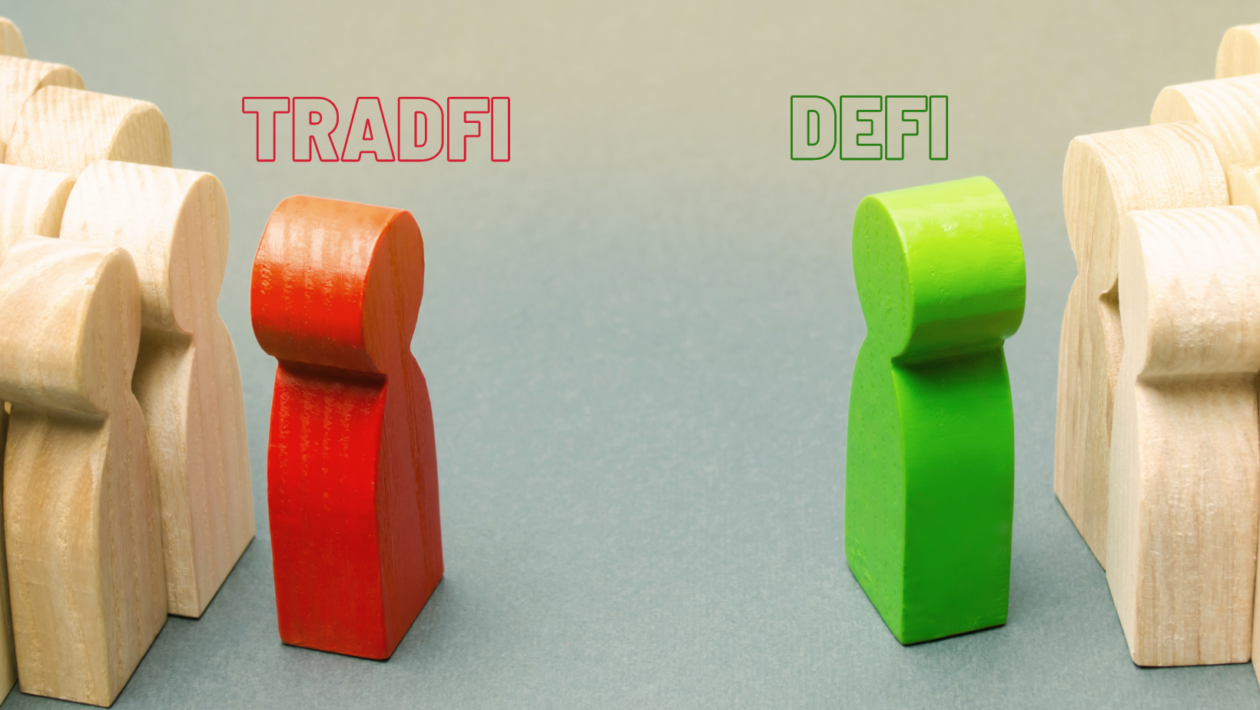For the last year or so, we have watched the crypto sector endure a series of implosions. Now the traditional banking industry is facing a seismic shakeout of its own. The swift collapses of Silvergate Bank, Silicon Valley Bank, Signature Bank and then Credit Suisse each individually rank among the largest bank failures in the world since the global financial crisis of 2008.
For me, one of the more shocking aspects of the unfolding drama is just how deeply the battlelines have been drawn between traditional finance and decentralized finance (DeFi). And that’s not helpful for either side.
A wide majority of DeFi thought leaders are unapologetically celebrating the downfall of these banks. Regardless of the potential job losses and financial fallout — including among crypto firms — many DeFi commenters are taking a “holier than thou” stance and reveling in TradFi’s calamity.
Meanwhile, the collapses of crypto’s friendliest banks have seen TradFi players guffawing, as crypto startup founders scramble to find alternative banking partners, just to stay in business.
And even more distasteful, the focus for many is using this chaos to gain “clout” for their personal brand. Note former Coinbase CTO Balaji Srinivasan’s egotistical bet on the turmoil driving BTC to US$1 million, insensitive to the real financial hardships facing hardworking people.
Whichever side we individually prefer, this bloodlust won’t result in a stable, sustainable financial system. Deepening the divisions between DeFi and TradFi helps neither side. We should be taking collective, holistic efforts to upgrade the world’s financial system and expand financial access.
What went wrong: the blame game
The collapse of Silvergate Bank seems to be a case of poor risk management across the board. The U.S. government’s whiplash monetary and fiscal policies, the bank’s poor management and even worse communication, and startups’ poor financial management all played a role. Meanwhile, SVB seems to have been single-handedly taken down by venture capitalist FUD and groupthink.
It remains to be seen if there is any truth to the claims that Signature Bank was purposely taken out by the authorities. The theory goes that the U.S. government wanted to ensure crypto gets its share of the blame instead of U.S. policy. This accusation itself of course is telling, indicating an atmosphere of heightened suspicion and lack of trust. As for Credit Suisse, the writing seems to have been on the wall for some time, yet conspiracy theories abound.
This blame game itself is a sign of the growing factionalism across the finance industry.
How we can de-escalate from here
We need to avoid escalating what could become a death spiral, with each side trying to undermine and obstruct the stable development of the other. The future of finance requires a truce between traditional financial institutions and the crypto industry. Deepening allegiance to the battlelines only feeds the public’s distrust of finance in general, and degrades the image of the finance industry to a self-interested power struggle.
On the DeFi side, we need to work collaboratively with the adults in the room. By engaging positively with regulators and major TradFi players, we can educate all parties on the benefits and advantages of DeFi. In fact, the strengths of decentralization, such as on-chain transparency as well as non-custodial and trustless solutions, are more relevant than ever in the current context.
Besides, DeFi doesn’t exactly hold the moral high ground. Before anything else, we cannot claim victory until we learn the basics from TradFi and rid the wider DeFi ecosystem of ponzinomics. From my own experience in TradFi derivatives, I know that for the most part, there are excellent risk management practices in place, which DeFi can still learn from.
As for professionals in traditional finance, my advice is to find the TradFi-experienced DeFi players and learn from them. Crypto is not the enemy. It’s the next evolution of finance. And now is the time to engage with crypto finance. If TradFi institutions don’t use this opportunity to embrace innovation and gain the lead in the blockchain revolution, they will forfeit their advantage and soon fall behind.
The same goes for regulators. Aggressively targeting crypto firms now will backfire in the long run. It’s much better, and more logical, to engage, embrace and evolve in step with innovation, or risk having that innovation flee to other, more welcoming regions instead.
Let’s work together, constructively
The finance industry’s behavior weighs on the public’s opinion of and trust in the overall ecosystem. Ultimately, pitting DeFi and TradFi against each other is detrimental to building a stable and sustainable financial system for all. After all, this is ultimately everyone’s shared goal.
We need to combine the best of both worlds, drawing from the TradFi systems we know and building on the DeFi systems we’re only just beginning to explore. Collaboration is key to building robust financial systems that offer transparency and inclusion for all.





